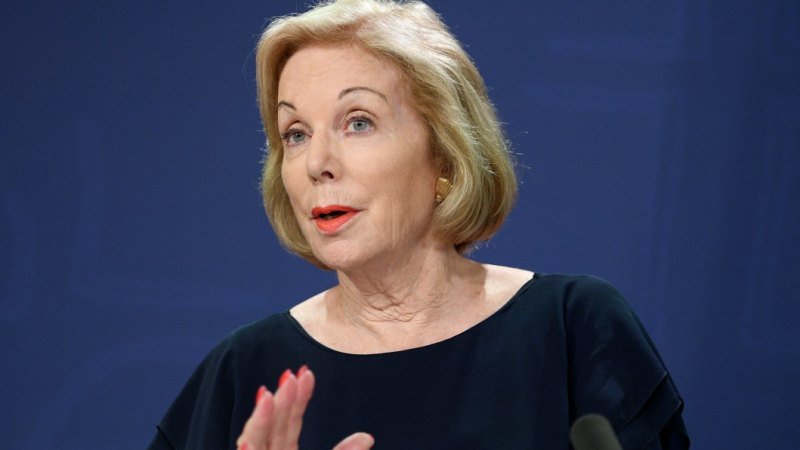ABC chair Ita Buttrose says the public broadcaster cannot afford to be risk-averse in the face of budget cuts, rising costs and global competition.
In a speech at the ABC Friends' annual dinner on Friday, Buttrose described these challenges as "incredibly daunting and perhaps good reason to think about marching backwards … [but] I'm not for retreating."
ABC chair Ita Buttrose says the broadcaster must face its challenges head-on.Credit:Dan Himbrechts
She prefaced her address with a 1967 quote from media theorist Marshall McLuhan: "When faced with a totally new situation, we tend always to attach ourselves to the objects, to the flavour of the most recent past. We march backwards into the future." Buttrose insisted the ABC "is in no position to behave this way; things are evolving too quickly and when faced with evolution, those who adapt survive."
In a media career spanning six decades, Buttrose launched Cleo magazine and edited The Australian Women's Weekly and The Daily Telegraph. In February, she was appointed chair of the ABC, five months after predecessor Justin Milne resigned amid the fallout from managing director Michelle Guthrie’s sacking.
"I do get angry that sometimes our commercial colleagues say that the ABC has it easy – that we have guaranteed funding … they may have missed the news that the amount of funding the ABC receives is not always guaranteed to be at the same level," Buttrose told the lobby group, which advocates for ABC's editorial independence and sufficient resourcing.
Who would have thought that it would take the Australian Federal Police to bring the ABC and News Corp together?
"But I do agree that we are in a fortunate position and in receiving valuable taxpayer money, we must continually strive to be responsible financial stewards … to most effectively meet our Charter responsibilities."
Buttrose noted that the 10 Network is now owned by US company CBS, while Seven may choose to merge with News Corp. "That's not so much Paul Keating's queens of screen and princes of print," she said, referring to the former prime minister's now-defunct cross-media ownership restrictions, "but more like Yanks with banks. But even so, these domestic companies will not even be minnows in the global pond, and they are swimming with sharks with very big teeth." (Nine Entertainment is the owner of The Sydney Morning Herald and The Age.)
Commercial outlets should consider more "collegiate" partnerships with ABC, she said. In 2016, ABC gave Netflix the streaming rights to season two of its drama Glitch in exchange for partial funding and the two organisations have since co-produced the political thriller Pine Gap. Next week, ABC's hit children's cartoon Bluey will launch on Disney platforms in the US.
"That may seem an anathema to some and Australian media, especially commercial television, is notoriously cut-throat – [but] with adversity comes unity," Buttrose said, highlighting recent raids on the homes of journalists reporting on Australian intelligence agencies. "Who would have thought that it would take the Australian Federal Police to bring the ABC and News Corp together? Quite ironic as it's usually News Corp that is attempting to police the ABC."
Commercial media's push for reduced local content quotas and its closure of regional newsrooms, she added, leave Australians increasingly reliant on the ABC for investigative journalism, ad-free children's content, and programs about Indigenous cultures and other communities.
If the ABC is expected to do more with less "there has to be some quid pro quo [with] those in power", Buttrose said, noting the Australian Competition and Consumer Commission recommends "stable and adequate" funding for public broadcasters.
"I believe the future for the ABC is bright, but we shouldn't be blinded by lights in the rear-view mirror," she said. "We will need to be a different ABC in the future than we were in the past."
Source: Read Full Article

